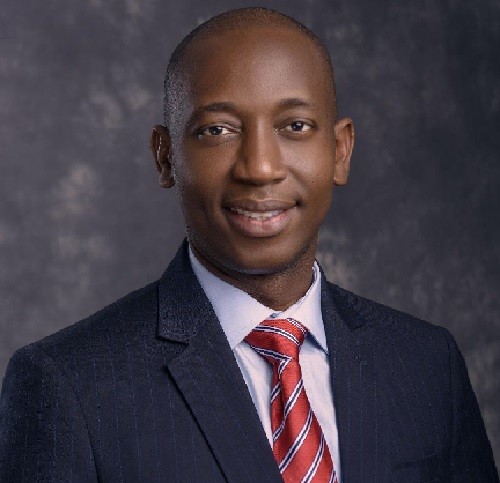
In this exclusive interview, Pharm. Adejuwon Otelaja, chairman of the Pharmaceutical Society of Nigeria (PSN), Kwara State Branch and chief executive officer, Kanymed Healthcare Nigeria Limited, highlights his administration’s programmes for Kwara PSN. The Obafemi Awolowo University graduate, who also holds a master’s degree in Business Administration, equally dissects other crucial issues relating to pharmacy practice in the state. Excerpts:
At what point did you decide to go for the PSN Kwara State chairmanship position, and what prompted the decision?
Prior to my becoming PSN chairman, I was the chairman of the Association of Community Pharmacists of Nigeria (ACPN), Kwara State, and the internal auditor of the PSN. My predecessors gave their best to take the profession to where it was but I believed we needed to up our game and raise our profile, if other players in the pharmacy value chain – the government and our respective communities – were to reckon with us and give us our dues.
Also, there was a proliferation of patent medicine vendors which affected our practice negatively. I also identified a crucial need to build capacity for Kwara pharmacists so that they can keep up with the frenetic pace at which the profession is progressing. I felt I needed to further contribute my own quota to making a positive difference in the state.
How many of your goals have you achieved so far and which ones are you working on?
It has been a collective effort. We have been able to design and launch a rural pharmacy development initiative to encourage willing community pharmacists to move to the rural areas. We are also currently working together with the ACPN to have full-fledged rural pharmacies in each of the three senatorial districts.
We have also set up the PSN Kwara Educational Grant Scheme to support willing pharmacists to attend universities and the West African Postgraduate College of Pharmacists (WAPCP) to develop themselves. We have equally launched welfare initiatives, such as the PSN Foodbank, free ECG checks for members, and a buddy system, where members are grouped into small groups of 10 that cut across different ages and technical groups for better interaction.
We have also recently facilitated the donation of a Drug Information Centre to the Kwara State General Hospital through one of our patrons, Pharm. Oba Ajibola Ademola, the Olusin of Ijara Isin. We also appointed other new patrons, such as Snr Apostle Oluwole Awotuyi, the chairman of Tuyil Pharmaceuticals; and legal luminary, Mallam Yusuf Ali.
We are still working on Kwara Pharmafarms which is an agricultural project, tailored to focus on food and cash crops that will serve as raw materials for the pharmaceutical industry; while Pharmacademy was created to further sharpen our skills, to improve our quality of service and business knowhow, among other things; as well as other numerous projects in the pipeline.
As the PSN chairman and a community pharmacist yourself, what is your assessment of community pharmacy practice in Kwara State? What are the challenges facing practitioners and how can they be surmounted?
Community pharmacy practice has suffered considerably over the years, mainly due to the proliferation of the Patent and Proprietary Medicine Vendors (PPMVs) and the prolonged court cases with the Council, which allowed them to have a free hand for years. But we thank God for the registrar and his team for dispensing with major court cases.
Another challenge is the low number of regulators in the state. Kwara is a very big state and three state officers cannot fully carry out complete monitoring and supervision. I want to commend our state officer, our DPS and other PIC members for their relentless effort in sanitising the practice environment; but we will continue to lobby for better operational vehicles and other staff and tools needed for work.
We also have more wholesale premises than retail, which is an aberration. Also, most pharmacists want to operate in Ilorin, the capital, while there are opportunities in the rural areas. The harsh economic environment, low power, inflation, high rates of borrowing and rising crime all further compound the problems.
There was a growing concern about the shortage of pharmacists in Kwara State, as expressed by one of the speakers at the last Kwara Pharmacademy programme, which is an unpleasant development for the health sector in the state. What do you think stakeholders in the profession should do to salvage the situation?
First, pharmacists in the state’s civil service are not well remunerated, which is one of the issues we have tabled before the government. So, just like osmosis, new pharmacists will prefer moving to areas of “high concentration”, thereby causing a shortage. In addition, a lot of community pharmacists prefer staying in Ilorin than exploring locations outside the cities.
As stakeholders, we have appointed very influential pharmacists and non-pharmacists, who have the ears of the government, as patrons. This is to enable them add their voices to our lobby group. The Rural Pharmacy Development Initiative is to address this shortage by creating new opportunities for pharmacists to thrive. We’ve also worked on ensuring that pharmacists employed by non-pharmacists get respectable remuneration to encourage them to stay.
Over a year ago, precisely in 2020, the Pharmacists Council of Nigeria (PCN) sealed 499 pharmacies and patent medicine shops across Kwara State, over alleged illegal operations. The sealed outlets included 30 pharmacies and 469 PMS.
Would you consider this a welcome development?
It is a welcome development and we thank the PCN leadership, as well as the zonal and state officers for an excellent job. We call on the federal and state governments to increase allocation to the PCN to enable the council to employ more pharmacists and buy operational vehicles to aid inspections and enforcement activities regularly.
What can you say about the happenings in the healthcare sector in Kwara State?
The current government is doing quite well in developing the health sector, with the payment of counterpart funding for development partner projects, renovation of general hospitals and Primary Health Centres.
One major challenge the state has is insufficient funds available for the Essential Drugs Project. This causes a reduction in drug quantity supplied, as well as puts a strain on pharmaceutical companies supplying. We are advocating for the Essential Drugs Project in the Ministry of Health to be upgraded to an agency status – headed by pharmacists – which will ensure medicine security and improve quality of care, as well as boost revenues for the state government.
What are your recommendations for improving the welfare of pharmacists in the country?
Pharmacists should be entitled to grants for professional development, so as to enable sub-specialisation, which will help considerably in improving health outcomes. Single-digit special interest rates, similar to what the CBN gave during COVID-19, should be extended to community pharmacists and manufacturers, to enable them to break even and make medicines more affordable to the populace.
The CBN should also give special consideration for accessing foreign exchange for importers and manufacturers as well as duty waivers or considerable reduction for equipment imports. Additionally, centralised placement of intern pharmacists is long overdue.
Also, the government should ensure full implementation of the National Drug Distribution Guidelines to sanitise drug distribution; and there should be a firm policy from the PCN to discourage the registration of and (with time) discontinue PPMVs in urban areas.
Where do you see PSN, Kwara State, by the time you will be leaving office?
My prayer is to see a PSN that is more united, bigger and stronger. A PSN that has fully become a social enterprise with its own investments and a PSN that will serve as an oasis of comfort to every pharmacist in distress.










